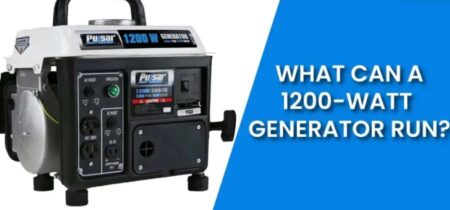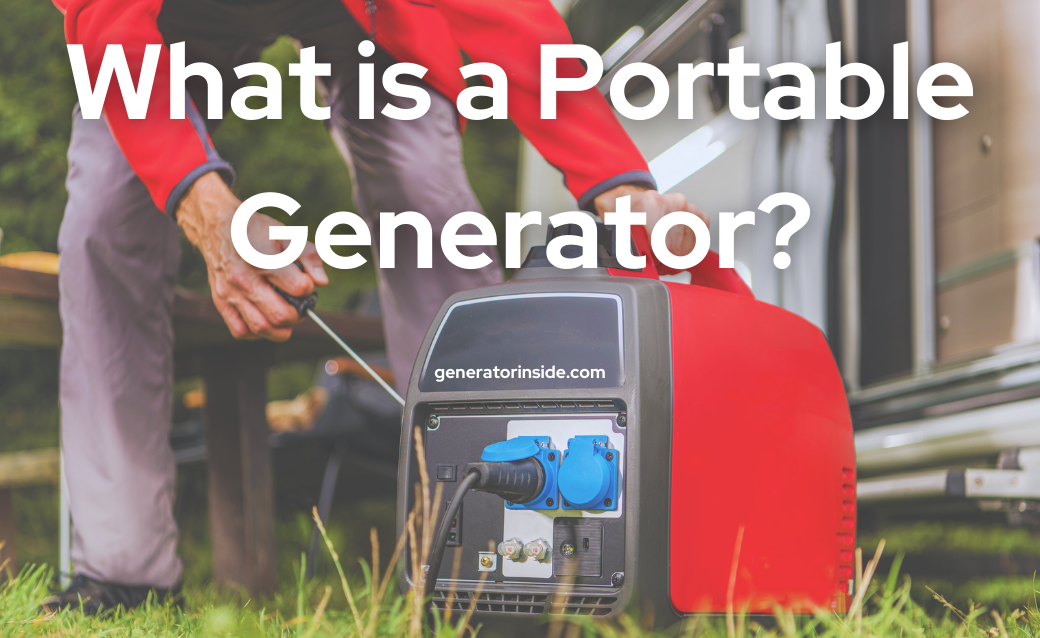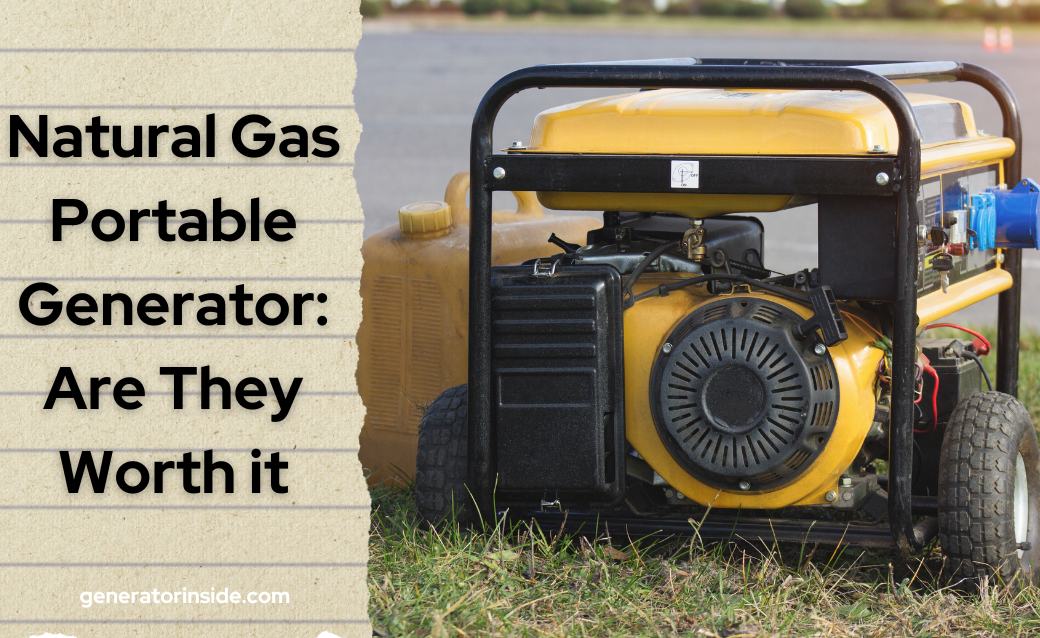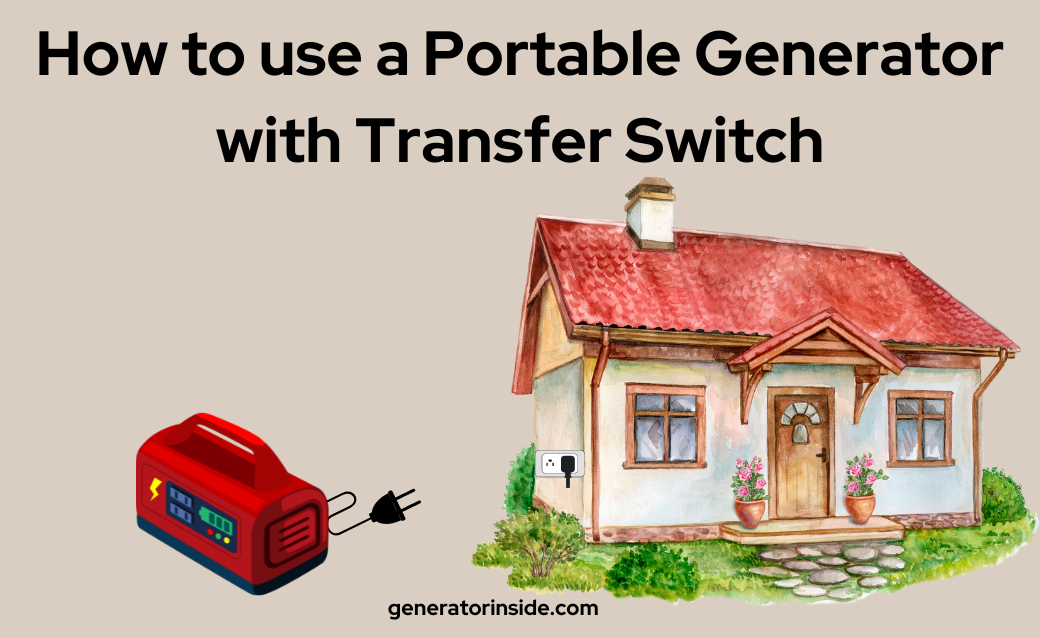
Electricity outage is an inevitable occurrence that affects many people, especially those residing in high-frequency blackout areas in the United States. It can result from natural disasters, infrastructure failure, or system breakdown. In today’s world, where electricity has become a vital part of our daily lives, losing power can cause a lot of inconveniences. What is a Small Portable Generator?
This is why generators have become more popular these days, as they are widely used in households, businesses, and large industries. Additionally, generators are highly beneficial for outdoor activities, enabling us to enjoy outdoor experiences even when off the grid. They also help us to continue with our daily leisure activities comfortably in our homes during unexpected power outages.
What are the Different Types of Small Portable Generators?
- Inverter Generators
Inverter generators use state-of-the-art technology to convert DC power into AC power, providing a clean, stable energy output. They are known for their efficiency, quiet operation, and lightweight design. Inverter generators are suitable for powering sensitive electronic devices such as laptops, smartphones, and televisions without the risk of damaging them.
Pros
- Quiet operation: Inverter generators are significantly quieter than conventional generators, making them ideal for camping trips, tailgating, or residential use.
- Fuel efficiency: These generators adjust their engine speed based on the power demand, resulting in lower fuel consumption and reduced emissions.
- Clean power output: The inverter technology provides clean, stable power that is safe for sensitive electronics.
Cons
- Limited power output: Inverter generators typically have a lower power output compared to conventional generators, making them less suitable for heavy-duty applications.
- Higher cost: The advanced technology used in inverter generators makes them more expensive than their conventional counterparts.
- Conventional Generators
Conventional generators have been around for years and are the most common type of portable generator. They use an alternator and a motor to generate power, making them suitable for a wide range of applications.
Pros
- Lower cost: Conventional generators have a lower initial cost than inverter generators, making them more affordable for budget-conscious users.
- Higher power output: These generators usually have a higher power output, making them suitable for more demanding applications such as powering large appliances or tools.
Cons
- Noise: Conventional generators are generally noisier than inverter generators, which can be a concern in residential or noise-sensitive environments.
- Less fuel-efficient: These generators have a constant engine speed, resulting in higher fuel consumption and emissions.
- Power quality: Conventional generators may not provide clean, stable power for sensitive electronics, potentially causing damage to devices.
- Solar Generators
Solar generators are an eco-friendly alternative that uses solar panels to capture sunlight, converting it into electricity stored in a battery for later use. These generators are silent, emission-free, and require no fuel, making them ideal for those who prioritize sustainability and environmental consciousness.
Pros
- Environmentally friendly: Solar generators use renewable solar energy, making them an eco-conscious choice.
- Silent operation: Unlike fuel-powered generators, solar generators operate silently, making them perfect for residential or noise-sensitive applications.
- No fuel costs: Since solar generators rely on sunlight, there are no fuel costs, making them cost-effective in the long run.
Cons
- Initial cost: Solar generators often have a higher initial cost due to the need for solar panels and batteries.
- Limited power output: The power output and capacity of solar generators depend on the size of the solar panels and batteries, which may not be sufficient for high-demand applications.
- Charging time: The charging time for solar generators depends on sunlight availability, making them less reliable in cloudy weather or during nighttime.
Here’s a quick overview of the pros and cons:
| Solar Generator | Inverter Generator | Conventional Generator | |
| Pros | |||
| Environmentally friendly | Solar power is clean and renewable | Fuel-efficient and produces fewer emissions than conventional generators | N/A |
| Low maintenance | Minimal maintenance required as there are no moving parts | Minimal maintenance required due to fuel efficiency | Requires regular maintenance such as oil changes |
| Quiet operation | Silent operation, making them ideal for indoor use and outdoor activities | Very quiet operation due to the inverter technology | Can be noisy, making them less ideal for indoor use and outdoor activities |
| Portable | Lightweight and easy to transport | Compact and easy to move around | Heavy and bulky, making them more difficult to move around |
| Cons | |||
| Limited Power output | Limited power output and may not be suitable for high-demand appliances | Limited power output and may not be suitable for high-demand appliances | High power output, but may be excessive for some applications |
| Dependent on Sunlight | Requires sunlight to charge the batteries, making them less reliable during cloudy or rainy weather | N/A | N/A |
| Higher Initial Cost | Expensive initial cost | More expensive than conventional generators | More affordable upfront cost, but may be costly in the long run due to fuel consumption and maintenance |
What Are Small Portable Generators Used For?
We’ll explore the various uses of small portable generators and how they can make life more convenient and efficient.
- Outdoor Recreation
Camping, tailgating, and other outdoor recreational activities often take place in remote locations without access to grid power. Small portable generators are perfect for these situations, providing power for lighting, cooking appliances, and electronic devices. With their lightweight and compact design, these generators are easy to transport and set up, making outdoor adventures more comfortable and enjoyable.
- Backup Power for Homes
Power outages can occur due to weather-related events or technical issues with the electrical grid, leaving homes without electricity for hours or even days. A small portable generator can serve as a reliable backup power source during such times, powering essential appliances like refrigerators, freezers, and communication devices. This can help prevent food spoilage, maintain access to information, and provide a sense of security and comfort during emergencies.
- Emergency Preparedness
Natural disasters and extreme weather events can cause widespread power outages, making it crucial for individuals and families to be prepared. Small portable generators play a vital role in emergency preparedness, providing temporary power for lighting, heating, cooking, and charging electronic devices. This can be especially important for those with medical equipment that relies on electricity, such as oxygen concentrators or dialysis machines.
- Job Sites
Contractors, builders, and other professionals often require power on job sites where grid electricity is unavailable or insufficient. Small portable generators can supply the necessary power for tools and equipment, allowing work to proceed smoothly and efficiently. Additionally, these generators can be easily transported between job sites, making them a valuable asset for professionals in various industries.
- Remote Events and Festivals
Outdoor events and festivals, such as weddings, concerts, or farmer’s markets, often take place in locations without access to grid power. Small portable generators can provide electricity for sound systems, lighting, food preparation, and other event-related needs, ensuring a successful and enjoyable experience for all attendees.
- RV and Boating Adventures
Recreational vehicles (RVs) and boats often have limited onboard power capabilities, making small portable generators a useful addition for extended trips. These generators can provide power for appliances, electronics, and other onboard systems, ensuring comfort and convenience while traveling or at anchor.
- Off-Grid Living
Individuals and families living off the grid, whether by choice or necessity, rely on alternative power sources for their daily needs. Small portable generators can supplement renewable energy systems, such as solar or wind power, during periods of low energy production. They can also serve as a backup power source during maintenance or repairs, ensuring a consistent and reliable energy supply.
- Disaster Relief and Recovery
Following natural disasters, small portable generators can be invaluable assets for relief and recovery efforts. They can provide power for medical equipment, communication devices, and temporary shelters, making a significant difference in the lives of those affected by the disaster.
How to Choose the Right Small Portable Generator for Your Needs
Selecting the right small portable generator can be a daunting task, given the numerous options available on the market. To find the perfect generator for your specific needs, it’s essential to consider several factors, including power output, fuel type, noise level, and portability. In this article, we’ll outline a step-by-step guide to help you choose the right small portable generator for your needs.
- Determine your Power Needs
Before purchasing a generator, it’s crucial to assess your power requirements. Make a list of the appliances and devices you need to power simultaneously and calculate their combined wattage. This will help you determine the minimum power output your generator should have. Remember to consider starting watts (the initial power surge required to start an appliance) as well as running watts (the power needed for continuous operation).
- Choose the Fuel Type
Small portable generators are typically powered by gasoline, propane, or diesel. Each fuel type has its pros and cons. Gasoline is widely available and relatively affordable but has a shorter shelf life and produces more emissions. Propane is cleaner and has a longer shelf life but may have reduced power output compared to gasoline. Diesel generators offer better fuel efficiency and longer runtimes but can be more expensive and less portable. Consider fuel availability, storage, and environmental impact when choosing the fuel type for your generator.
- Consider Noise Level
Noise level is an essential factor to consider, especially if you plan to use the generator in a residential or noise-sensitive environment. Inverter generators are generally quieter than conventional generators, making them more suitable for such settings. Check the generator’s decibel rating and compare it to your noise tolerance.
- Evaluate Portability
The size and weight of the generator will impact its portability. If you plan to transport the generator frequently, look for a model with a compact design, built-in wheels, and a comfortable handle. Lightweight inverter generators are ideal for camping and tailgating, while heavier conventional generators may be better suited for job sites or stationary backup power.
- Check for Additional Features
Some small portable generators come with additional features that can enhance their functionality and convenience. Look for features like multiple outlets, USB charging ports, electric start, low-oil shutdown, and fuel gauges. These features can make operating and maintaining your generator more manageable and user-friendly.
- Set a Budget
Generators come at varying price points, so it’s essential to establish a budget before shopping. Keep in mind that higher-priced models often offer better performance, durability, and additional features. However, it’s possible to find reliable and efficient generators at more affordable prices, too.
- Research and Read Reviews
Once you’ve narrowed down your choices, research each model thoroughly and read customer reviews. This will provide you with valuable insights into the generator’s performance, reliability, and potential issues.
By following these steps and carefully considering your specific needs, you can confidently choose the right small portable generator for your situation. A well-selected generator will provide you with the power you need, ensuring convenience, safety, and peace of mind in a variety of circumstances.
What is a Small Portable Generator Conclusion
Small portable generators are incredibly versatile and valuable tools that cater to a wide range of applications. From outdoor recreation and emergency preparedness to job sites and off-grid living, these compact power sources provide reliable electricity when and where it’s needed most.
To choose the right generator for your needs, it’s essential to assess your power requirements, and consider fuel type, noise level, portability, and any additional features that may be important to you. By carefully evaluating these factors and setting a budget, you can make an informed decision that will ultimately provide you with a reliable and efficient power solution.
Investing in a small portable generator can enhance your life by ensuring access to power in various situations, offering convenience, safety, and peace of mind. Whether you’re an avid camper, a homeowner seeking backup power, or a professional requiring electricity on the job site, a small portable generator can be a game-changer and a worthwhile addition to your equipment arsenal.
Also Read:
How To Run a Hydrogen Power Generator to Power Your House?
How to Use a Generator During a Power Outage
How Much Does a Generac Solar Generator Cost
How to Use a Portable Generator
What type of Solar Power Generator for Home are best in 2023













